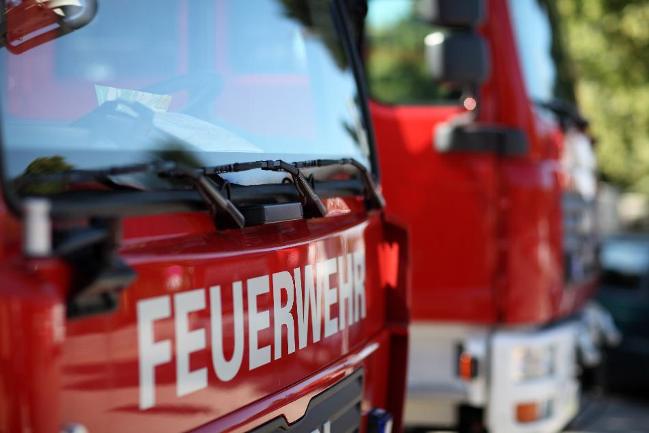Cartel fine proceedings
Uncovering a cartel

Illegal cartels are conducted in secret. The persons and companies involved in such agreements are extremely secretive. Information provided by persons and companies that are involved in or affected by illegal agreements thus plays a very important role.
There are different sources which can help uncover illegal agreements. For example, the Bundeskartellamt can receive information pointing to illegal agreements from market players. These can be employees of a company participating in a cartel, suppliers affected by the cartel or customers. Information can also be provided by other authorities.
The Bundeskartellamt also conducts its own research or follows up on new information gathered in ongoing proceedings or investigations. In this context IT-based analytical tools are becoming increasingly important. For example, they can help to systematically analyse bidding behaviour in tender procedures or price-setting practices used in a specific sector.
Information provided by persons who disclose their identity and their relationship to the cartel is generally considered reliable evidence and is thus more useful in prosecuting cartels. However, there are situations where insiders might be reluctant to share information for fear of negative consequences or even reprisals. For such cases the Bundeskartellamt also has an IT-based whistleblowing system which allows people to report cartels anonymously. There is no technical way to trace information back to a specific person.
Find out more about the anonymous whistleblowing system
The Bundeskartellamt’s leniency programme is of particular significance. Over half of all cartel fine proceedings are triggered by information provided by key witnesses.
The leniency programme in brief
- The first participant in an anti-competitive agreement to disclose a cartel of which the Bundeskartellamt was previously unaware is not fined (“first come, first served” principle). Immunity from fines can also be granted at a later time if the Bundeskartellamt receives decisive evidence without which the existence of a cartel could not have been proven. Members of a cartel who have coerced others to participate in the cartel are not entitled to immunity.
- All other and subsequent leniency applicants can have their fines reduced by a maximum of 50 per cent, provided they cooperate with the Bundeskartellamt and provide evidence that is decisive for proving the offence.
- The immunity from and reduction of fines is conditional on the leniency applicant’s continuous and full cooperation with the Bundeskartellamt throughout the proceedings.
Conducting cartel fine proceedings
Example: The fire engines cartel

For several years four fire engine manufacturers divided the market between them by guaranteeing each other certain shares of the total market referred to as “target quotas”. Whenever local authorities initiated award procedures for purchasing new fire engines, the manufacturers discussed which company should receive the individual contracts. In secret meetings held at Zurich airport attended by an accountant based in Switzerland, the participants determined quotas and allocated contracts.
How did the Bundeskartellamt uncover the case?
Tip-offs
The Bundeskartellamt usually learns of possible infringements through information provided by, for example, employees, customers or cooperative witnesses or through its own investigations in other cases. The tip-offs received are examined to establish whether they are plausible and relevant. The Bundeskartellamt became aware of the agreements concluded in the fire engine case following an anonymous tip.
Dawn raids
If there are sufficient initial grounds to suspect a violation of competition law, the Bundeskartellamt can carry out dawn raids to secure evidence at businesses or private premises. In the case of the fire engine cartel the Bundeskartellamt carried out a total of four dawn raids between May 2009 and July 2010. Two of these dawn raids were carried out in Austria with the assistance of the Austrian competition authority.
Evaluating the documents
Following a dawn raid, the seized documents are analysed. Some companies might voluntarily submit further information and documents in order to have their fine reduced. In the fire engine case all four manufacturers cooperated with the Bundeskartellamt.
Hearings
Apart from written evidence hearings also play an important role. The accused parties as well as witnesses are summoned to appear at the hearings. More than 20 persons were questioned in the fire engine cartel case.
Imposing fines
The Bundeskartellamt’s order imposing a fine describes the course of events resulting in the infringement, provides a legal assessment of the conduct in question and sets a fine. In the fire engine cartel case the Bundeskartellamt imposed fines amounting to about 50 million euros in 2011/2012 on the four companies and the accountant involved.
If necessary: Conducting legal proceedings
If the companies do not accept the fine, they can appeal against the administrative order imposing the fine. The competent court for such appeals is always the Düsseldorf Higher Regional Court. Appeals on points of law against decisions of the Düsseldorf Higher Regional Court can be lodged with the Federal Court of Justice in Karlsruhe. One of the companies involved in the fire engine case had initially filed an appeal, which was later on withdrawn. The fine imposed on the company thus became final as well.
Penalties and amount of fines
The Bundeskartellamt can impose heavy fines. An administrative fine of up to 1 million euros can be imposed against company representatives. Companies and associations of companies can be fined up to ten percent of their annual turnover. The exact amount of the fine depends on the gravity and the duration of the infringement. In setting the fine all aggravating or extenuating circumstances are considered part of an overall appraisal. In particular, the turnover linked to the infringement, that is the turnover achieved with the products or services that were the subject of the cartel agreement, can also be significant in this context (see Section 81 of the German Competition Act (Gesetz gegen Wettbewerbsbeschränkungen – GWB) and the Bundeskartellamt’s Guidelines for the setting of fines). The company’s financial capacity is also taken into account.
The fines collected are credited to the federal budget and thus indirectly benefit all consumers.
| Year | Cartel proceedings | Total fines imposed | Highest single fine imposed on a company |
|---|---|---|---|
| 2020 | Aluminium forging | 174,841,500 | 145,000,000 |
| 2020 | Plant protection products | 157,817,170 | 68,600,000 |
| 2019 | Quarto plates | 646,405,000 | 370,000,000 |
| 2018 | Special steel | 304,050,050 | 118,000,000 |
| 2014 | Beer | 338,000,000 | 160,000,000 |
| 2014 | Sausages | 338,500,000 | 128,050,000 |
| 2014 | Sugar | 281,700,000 | 195,500,000 |
| 2009 | Coffee | 159,000,000 | 83,000,000 |
| 2008 | Clay roof tiles | 188,081,000 | 66,280,000 |
| 2007 | Liquefied petroleum gas | 249,000,000 | 67,200,000 |
| 2003 | Cement | 396,000,000** | 175,900,000 |
* Figures are rounded. Since litigation is still pending in individual cases, not all the fines are final.
** Total sum of final fines based on a judgment issued by the Federal Court of Justice in 2013.
Settlement
Administrative fine proceedings can be concluded in the form of a negotiated agreement (settlement) between the Bundeskartellamt and the parties concerned. In the case of cartel agreements a settlement can lead to a reduction in fines of up to 10 per cent. Settlements save resources and shorten the usually long duration of cartel fine proceedings.
The formal requirement for a settlement is a confession and a settlement declaration in which the company or individual involved acknowledges the facts of the infringement with which it or the individual is charged and accepts the fine up to the amount announced. A waiver of the right to appeal is not part of a settlement declaration.
Other consequences
While cartel prosecution aims at punishing cartels it is also intended to achieve as much deterrence as possible to prevent companies from engaging in cartel activity in the first place. If a cartel is uncovered, the companies and managers involved will face heavy fines. In addition, the cartel members’ public image is often severely tarnished. In most cases they will also face substantial claims for damages brought by cartel victims after the proceedings have been concluded. More and more companies are therefore seeking to adopt effective compliance measures to prevent infringements.
Special case – Bid-rigging
Where cartels are formed with respect to tender procedures – referred to as bid-rigging in public tender procedures – the persons responsible may not only face fines but even imprisonment of up to five years (see Section 298 of the German Criminal Code (Strafgesetzbuch – StGB)).
Increased effectiveness
The Bundeskartellamt has always given the prosecution of illegal agreements a high priority. Over the last 20 years the Bundeskartellamt has further improved the effectiveness of its cartel prosecution by introducing a number of new measures.
| Year | Measure |
|---|---|
| 2000 | Introduction of a leniency programme |
| 2002 | Creation of the Special Unit for Combating Cartels, “SKK” |
| 2005 | Creation of a decision division specialising in cartel prosecution |
| 2006 | Fundamental review of the leniency programme |
| 2006 | Introduction of guidelines for the setting of fines |
| 2008 | Creation of another decision division specialising in cartel prosecution |
| 2011 | Creation of a third decision division specialising in cartel prosecution |
| 2012 | Introduction of an anonymous whistleblowing system |
| 2013 | Review of the guidelines for the setting of fines |
| 2017 | Legislative loophole in the liability for fines is closed (“sausage gap”). Implementation of the EU Directive on Antitrust Damages Actions |
| 2021 | Codification of the leniency programme |
| 2021 | Bundeskartellamt also becomes the prosecuting authority when it comes to court proceedings. |




